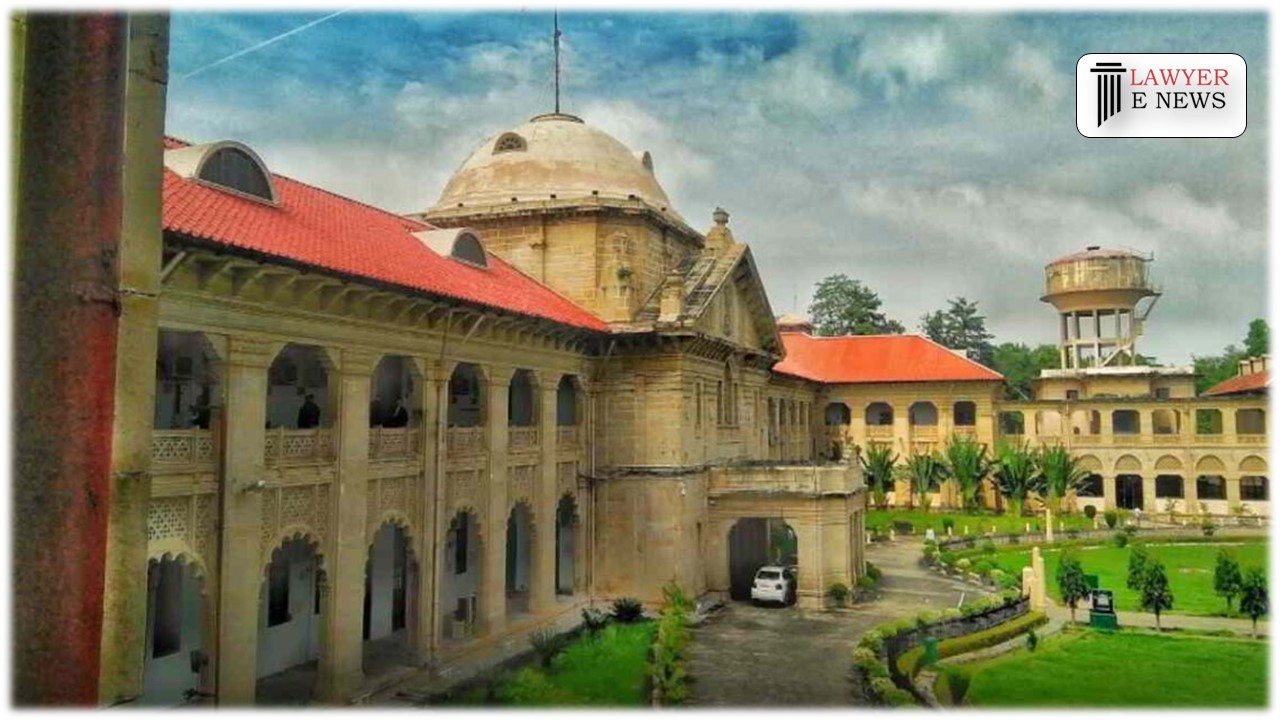-
by sayum
14 February 2026 2:22 PM



The Allahabad High Court today dismissed the review application filed by the Commissioner of Trade Tax, U.P., against Tata Steel Ltd., underscoring the limited scope of review jurisdiction under Order 47 Rule 1 of the Code of Civil Procedure, 1908. The application sought to challenge the Court's 2010 decision which included MODVAT credits in 'Fixed Capital Investment' under the U.P. Trade Tax Act, 1948.
The legal crux of this case revolved around whether certain expenses credited as MODVAT (Modified Value Added Tax) by Tata Steel Ltd. could be included in the 'Fixed Capital Investment' for the purpose of Trade Tax under the Uttar Pradesh Trade Tax Act, 1948. This interpretation was crucial for determining tax liabilities and the scope of deductions permissible under the Act.
Tata Steel Ltd. had initially succeeded in getting a ruling in their favor in 2010, which the Commissioner of Trade Tax sought to overturn. The primary contention in the review was the non-consideration of specific Supreme Court judgments during the original proceedings, purportedly leading to a miscarriage of justice.
Justice Shekhar B. Saraf's judgment meticulously outlined the principles governing review petitions. The judge emphasized, "A plea for review, unless the first judicial view is manifestly distorted, is like asking for the moon," quoting Justice V.R. Krishna Iyer to highlight that review is not an appeal and is constrained to rectifying only blatant errors apparent on the record.
Error Apparent on the Record: The Court noted that the arguments based on previously uncited Supreme Court judgments did not constitute an 'error apparent on the face of the record'.
Limited Scope of Review: It was clarified that review powers are limited, intended only to address palpable oversights and not to re-adjudicate settled matters.
Jurisprudence Cited: Multiple precedents were discussed, including 'Aribam Tuleshwar Sharma vs. Aribam Pishak Sharma', where it was established that review cannot serve as a vehicle to re-litigate issues on merits.
Decision: The Court dismissed the review application, upholding its original decision favoring Tata Steel Ltd., reiterating the legal stance that MODVAT credits can be included in 'Fixed Capital Investment' for trade tax calculations under the U.P. Trade Tax Act. Justice Saraf stressed the importance of judicial restraint and the finality of judgments, remarking, "unchecked review has never been the rule."
Date of Decision: May 13, 2024
M/S Tata Steel Ltd. v. Commissioner Trade Tax U.P. Lucknow
